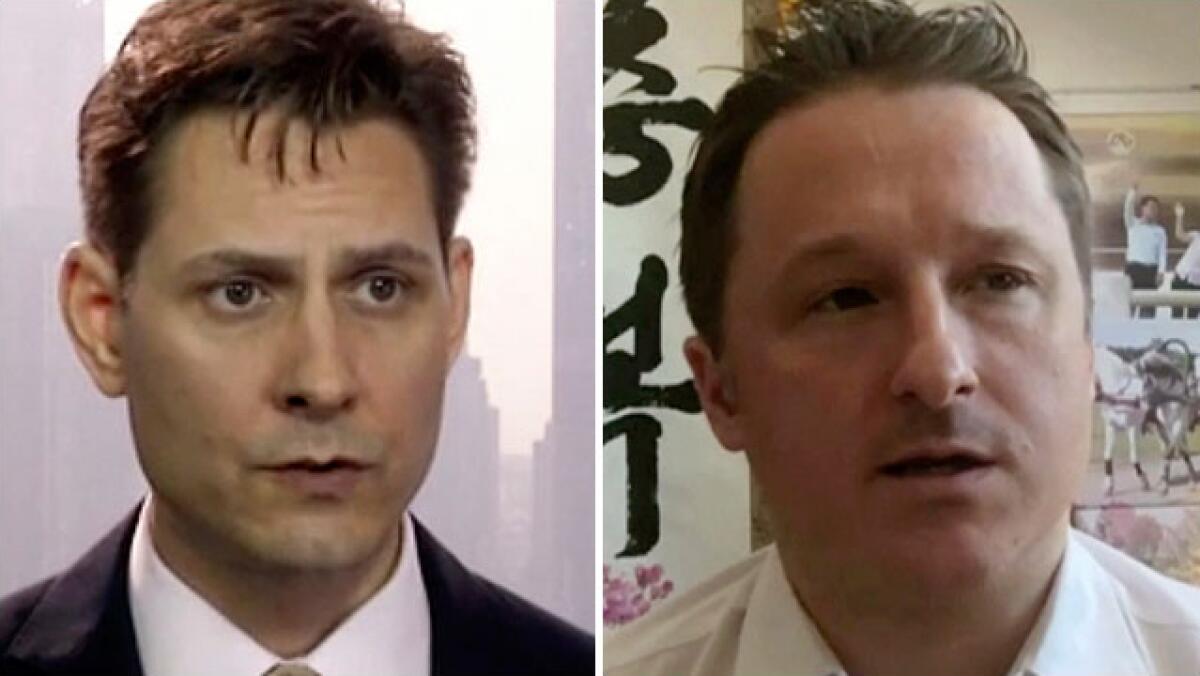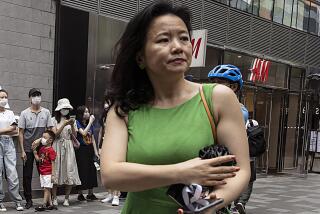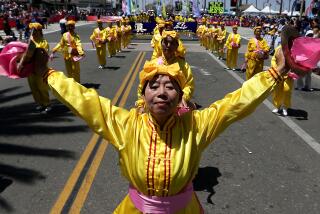China sentences Canadian to 11 years in case tied to Huawei

- Share via
BEIJING — A Chinese court has sentenced Canadian Michael Spavor to 11 years on spying charges in a case linked to Huawei.
Spavor was detained in 2018 after his government arrested an executive of the Chinese tech giant.
The verdict Wednesday is the latest indication of how Beijing is stepping up pressure on Canada ahead of a court ruling on whether to hand over the executive, Meng Wanzhou, to face U.S. criminal charges.
Spavor and another Canadian were detained in China in what critics labeled “hostage politics” after the executive’s 2018 arrest in connection with possible violations of trade sanctions on Iran.
Canadian Ambassador Dominic Barton was present at the hearing in the city of Dandong, on the North Korean border. No word has been given about a trial date for former Canadian diplomat Michael Kovrig, who was also detained in December 2018 and charged with spying.
Diplomats from the United States, Japan, Britain, Australia, Germany, other European countries and the European Union gathered at the Canadian Embassy in Beijing in a show of support. They also have issued separate appeals for Spavor and Kovrig to receive fair trials or to be released.
“These proceedings are a blatant attempt to use human beings as bargaining leverage,” the top U.S. diplomat in China, David Meale, said in a statement. “Human beings should never be used as bargaining chips.”
On Tuesday, another Chinese court rejected the appeal of a third Canadian whose prison term in a drug case was abruptly increased to death following the executive’s arrest.
The court sent the case to China’s supreme court for review, a required step before a death sentence can be carried out.
The Canadian government criticized the ruling as arbitrary and the penalty as “cruel and inhumane.”
“We condemn the verdict in the strongest possible terms and call on China to grant Robert clemency,” Ambassador Barton told reporters by phone after attending the appeals hearing in Shenyang, about 12 miles west of Dandong.
Schellenberg was convicted of smuggling nearly 450 pounds of methamphetamine, according to the court.
Asked whether the three cases were linked to Meng’s, Barton said, “I don’t think it’s a coincidence these are happening right now while events are going on in Vancouver.” He said the case was “part of the geopolitical process.”
The ambassador said Canadian diplomats talked with Schellenberg after the ruling but declined to give details.
“He is remarkably composed,” Barton said. “We had a good conversation.”
Two other Canadians, Fan Wei and Xu Weihong, also were sentenced to death on drug charges in separate cases in 2019 as relations between Beijing and Ottawa deteriorated.
Meng, the chief financial officer of Huawei Technologies and daughter of the company’s founder, was arrested Dec. 1, 2018, in Vancouver on U.S. charges of lying to the Hong Kong arm of the British bank HSBC about possible dealings with Iran in violation of trade sanctions.
A judge in Vancouver is due to hear final arguments in the next few weeks about whether Meng should be extradited to the United States. Her lawyers argue that the case is politically motivated and what she is accused of isn’t a crime in Canada.
China’s government has denounced the arrest as part of U.S. efforts to hamper its technology development and demanded Meng’s immediate release.
Canada and other governments including Australia and the Philippines face growing Chinese pressure including trade boycotts in disputes over human rights, the coronavirus and territorial claims. Washington has warned Americans that they face “a heightened risk of arbitrary detention” in China for reasons other than to enforce the law.
The Huawei case is one of a series of conflicts between Beijing and other governments over China’s technology ambitions, the coronavirus, human rights, Hong Kong and claims to control over the South China and East China Seas.
China has tried to pressure Canadian Prime Minister Justin Trudeau’s government by imposing restrictions on imports of canola seed oil and other products from Canada.
Meanwhile, Beijing is blocking imports of Australian wheat, wine and other products after the government in Canberra called for an investigation into the origin of the COVID-19 pandemic.
More to Read
Sign up for Essential California
The most important California stories and recommendations in your inbox every morning.
You may occasionally receive promotional content from the Los Angeles Times.













